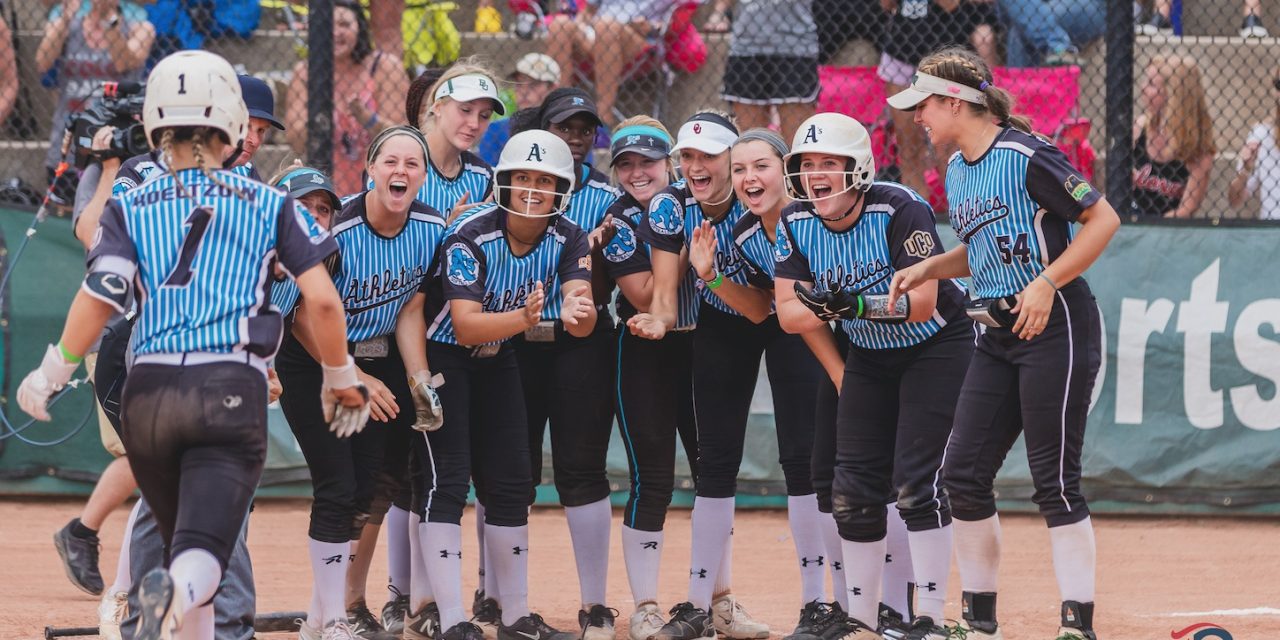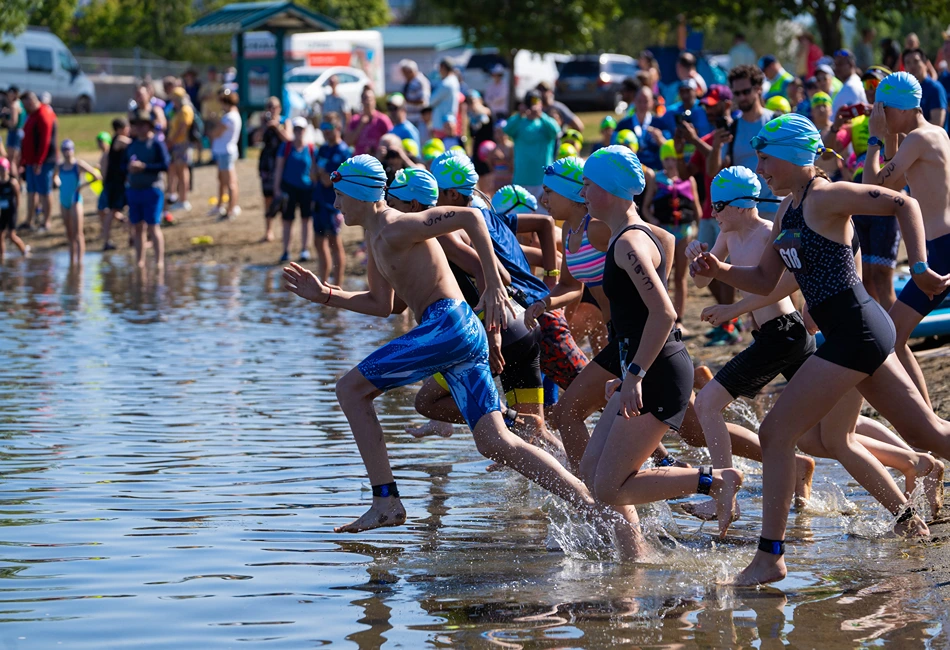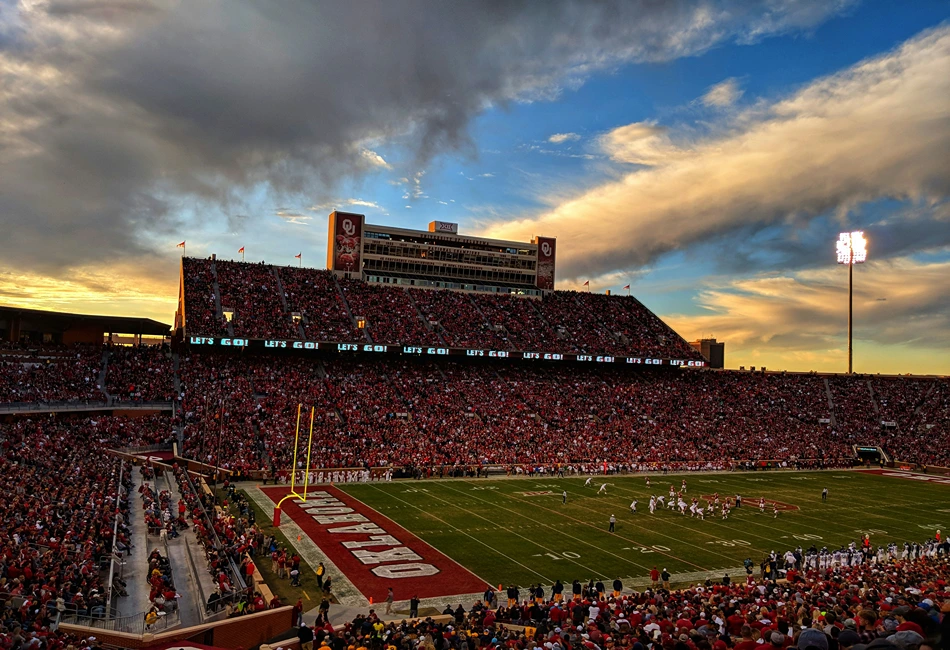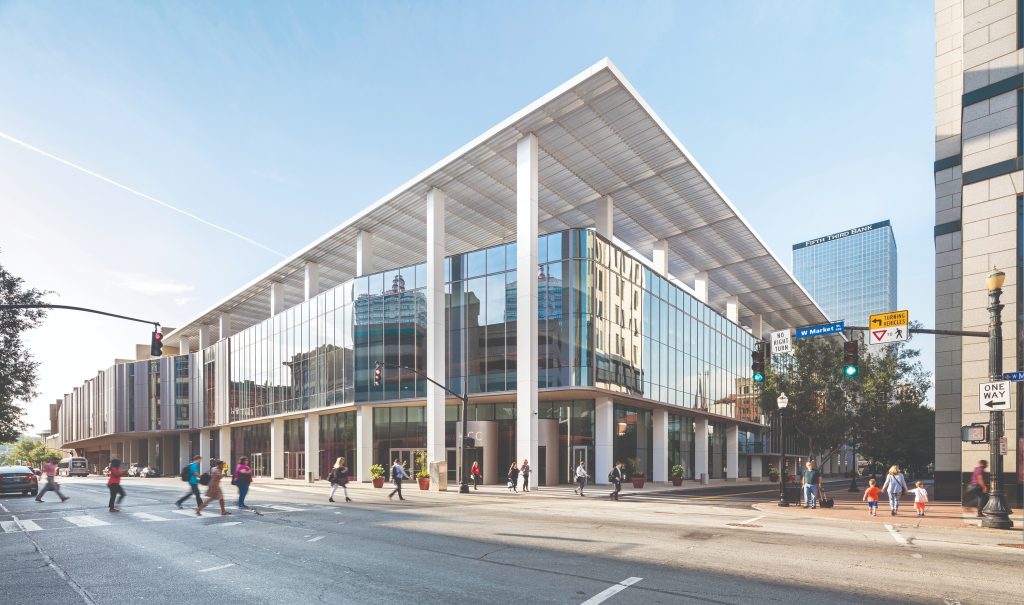Through and through, Andy Hansen is a proud Coloradoan. An equally avid fan of sports and family, Hansen grew up in the resort town of Glenwood Springs, Colorado, where he helped run Blue Sky Adventures, the family rafting, fishing and biking business of 40 years and counting.
Aside from a brief stint as a graduate assistant in athletics at the University of Oklahoma, Hansen has lived and worked in the Centennial State as a student media relations intern at Colorado State University (2001-05), while leading guided trips down mountain rivers at Blue Sky Adventures (1998-2008), and for the past 13 years since joining Triple Crown Sports (TCS).
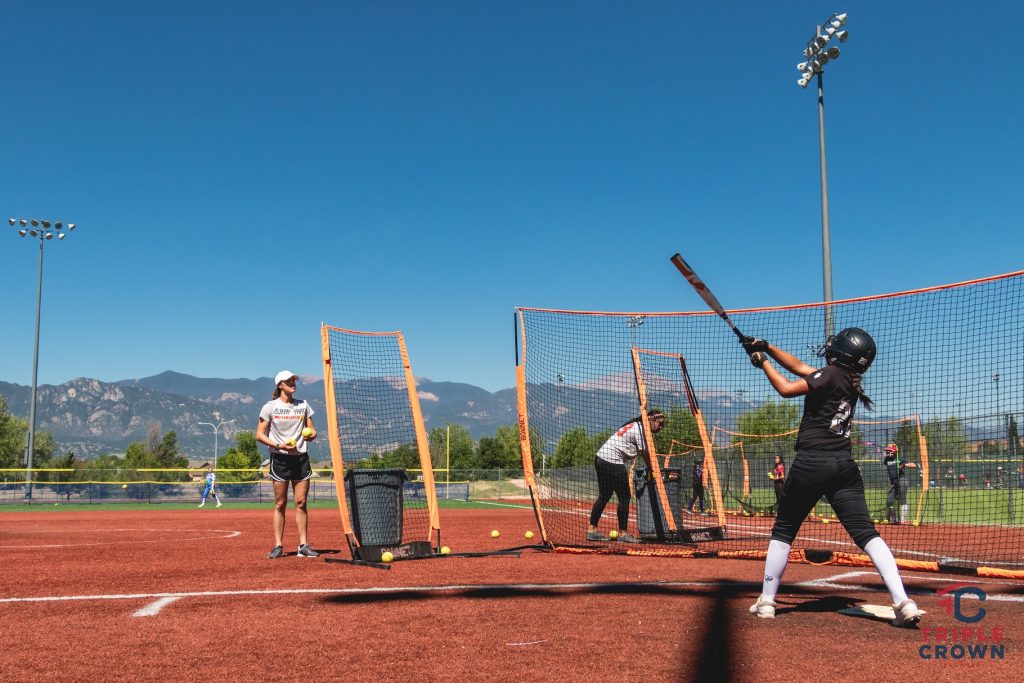
Currently the chief marketing officer at TCS, Hansen has honed his sports business and marketing pedigree to ascend the company ranks from east coast event coordinator to the C-suite, overseeing a full-time staff of eight and diving into national media rights negotiations and premier live events. In this SPG Interviews, we examine what leveraging public and media relations can do for a brand, how event directors and marketers are naturally aligned, and what a Triple Crown spin event looks like in Cancun.
Sports Planning Guide (SPG): While you’re certainly an experienced marketer through economic disruptions of the past, you surely picked up some things having now navigated a pandemic. How do you make sure you are reaching your primary audiences nowadays versus a couple of years ago?
Andy Hansen (AH): During the pandemic we wanted to make sure our brand was still front and center with our customers. We did a lot of Zoom meetings, almost like live roundtable discussions with coaches, players and parents. At that time nothing was being played, but we wanted to make sure people were still engaged with our brand and the events that we put on. We have taken that same concept and used it as one of our marketing tools. We did a lot with Dave King, who is our founder and has a rich history of softball and knows a lot about the game. We’ve done different calls with him, a live chat with our customers to answer questions, and we’ve seen a lot of success with it helping the brand stay intact throughout the pandemic. And because of that, we had a really good summer in 2020 and this year because people were still engaged with us. We built it up and people were really excited to get back on the field, and we had a great return where we didn’t exactly know what was going to happen.
SPG: It’s been nearly 40 years since TCS’s first iterations with slowpitch softball events. As the years have passed, TCS has become a brand of sorts. How does TCS define itself, as an event business or brand?
AH: We’re an event business. Our brand is premium destination events. We focus on finding great destinations that either have a lot to offer or it’s tied into another event. The College World Series in Omaha or the Women’s College World Series in Oklahoma City are good examples of where we’ve tied in with another event and created this destination spot for teams to come in, play ball and enjoy other activities. Same thing with destinations like Colorado Springs, Park City, Myrtle Beach, where it’s almost like a vacation spot for teams—come in, play ball and get a family vacation at the same time. That’s how we’ve built our brand and that’s what we’re known for, these premium destination spots where teams can tie in multiple experiences along with the event itself.
SPG: In addition to the premium events, what are some other areas of expertise TCS offers?
AH: We have our own lodging division within Triple Crown, and we’ve created our own technology as well behind booking, getting the different contracts in place and getting that on our site. We’re actually working with EventConnect for some of our events. We tested it last year and are starting to use it more on the lodging side. But we have developed our own lodging system within Triple Crown and we have full-time staff to manage it.
SPG: You also prioritize intentional public relations and media relations programs, which is not too common within youth sports event business. How did that program come to be and what makes it so successful?
AH: I come from the college athletics side and I see what concerted effort toward digital and social media and media relations can do for a brand. When I first started here, none of that really existed. At that time, I presented it to Dave King, our CEO then, believing we needed to focus on this to grow the Triple Crown brand, really showcase the events that we run and show the experiences these teams are having. That’s not only going to grow team registrations, it’s also going to showcase these destinations and be a great way to build the TCS brand nationwide. It started out with me focused on it, and we’ve created a full team of content writers and producers, social media managers, to a full-time videographer and photographers. Our daily efforts are just building the TCS brand, showcasing the digital channels that we offer and engaging back with the customer and building relationships a little closer with the customer digitally.
SPG: How has the industry responded to those PR efforts?
AH: Since we’ve had a focused effort on our digital brand, more outside brands reach out to us because the youth sports industry doesn’t have that. There are only a few groups that have the platforms and following that we have, because we are focused on it. Other groups have wanted to be a part of that because they recognize it. The youth sports industry is such a fast-growing space that larger brands want to be involved. They’ve told us they like how we look more like a college athletic department or a professional sports team. The people we’ve hired also have that same background because we’ve seen and appreciate the value of that perspective. Once you have that built, you see other brands that want to come in and tie into your brand and work off of each other.
SPG: Where does that outreach fit into your larger marketing efforts?
AH: There are two primary marketing and branding efforts for our company. One is running good events. We know word of mouth is really No. 1. If you put on a great event, the marketplace talks a lot. They go to other events, they meet at the diamond for a plate meeting and say, ‘Omaha was a great experience, you guys need to do that.’ We make sure that our first priority is running really good, must-attend events. And that will help market and create word of mouth in itself. Our second has always been relationships. We’re always building close relationships with our customers, so our event directors spend a lot of time either on the phone or text or bringing people into the office or going to visit their club where they’re located. It’s old school, but it works in the industry that we’re in. Relationships are key for us to make sure that we continue to grow, add new events and get more teams playing with us.
SPG: Speaking of the event directors, what are some ways they help amplify your marketing efforts?
AH: Our event directors are almost like mini marketers themselves. They run the event, but they are also responsible for marketing their events. Their focus on marketing is the relationship building, through text message, email, phone calls or in-person meetings. That’s their world and they’re dedicated 100 percent to that style.
When it comes to our team, we then have other touchpoints to tell the story and describe experiences to create new leads and get other teams playing with us. We focus heavily on email campaigns that tie in graphics, photos and video to showcase the destination and different experiences these teams will have. After that, it’s the social/digital side. We use the social/digital side not only to market. What we’ve found is people don’t want to be marketed to about a brand. They want to engage with the brand, have a reason to follow it, so we try to focus our posts on engaging with the customer, telling stories, highlighting customers. If a team signs up for an event, we’ll have a premade graphic and we’ll grab their team pic and tweet it out. We’re reaching them in these other ways to help build that brand and use it more as a way to showcase those different experiences.
SPG: There are certainly no shortages of metrics. What are some of the ways TCS measures its marketing effectiveness amidst seemingly endless data?
AH: With our business, it can take six, seven, eight different touchpoints before a team makes a decision. For us to go, ‘hey it was the email, it was the social post, the phone call, it was this,’ is hard. For some of these events, it’s a 30, 40-thousand-dollar decision for the team once you factor in travel, lodging, food and other activities. If you’re heading to Omaha for the week and you’re going to play in our tournament, you’ll go to the College World Series, you’re going to do five nights of lodging, you eat at restaurants and you’re going to do all these different activities. It’s not just, they make a decision from the email. It was the email, they saw a cool video, then they talked to the event director and went to the website and read more information, and they went and met as a team with the parents and said, ‘hey what do you think?’ Then they came back and talked to the event director again.
It’s almost this process of being able to hit them multiple ways at multiple times before a decision-making action actually happens. It’s really hard for us to pinpoint. Was it the email, the social post? What was it that made them say we want to go to Omaha? It’s kind of everything and if you have a good formula and a good mix of ways that you’re targeting the customer, ultimately, it’s going to lead them to making the decision to come to the event.
We’ll send an email out and track our metric and say, it led to five registrations. Awesome, but that process could have been that person had already talked to our event director, had already watched the video and done all these things and then said, ‘oh yeah, we got to pay for it.’ As long as we’re doing everything we can, we’re going to be successful. Now which is the most? It’s going to depend on each team. Some of these teams are not on social, but they rely on email. Some are not on email or social but they do better on text, so you got to make sure that you’re doing everything. If you don’t, you’re going to miss potential customers.
SPG: From your marketing lens, what are some of the better ways a destination can stand out to TCS as a potential event host through a bid process?
AH: It’s pretty obvious in the proposal that comes back, as far as marketing and media and how that ties back into the events that we’re trying the run, that the location within the proposal is buttoned up and knows what they’re doing. That was one thing with Rockford (during the 2021 Postseason Women’s National Invitation Tournament bid process)—it was pretty obvious they had a handle on how to market the event to the community, how to go about getting media involved. Within the proposal itself, it was well laid out and we knew their team had done this before. As an event provider, we felt comfortable they could take that and run with it and make sure that the community itself understands what is coming, what exactly this is, and how it’s going to benefit the community as a whole.
Anytime we see that in a proposal, from my perspective, it’s always a green light—they’re going to take the event, they want the event and they’re going to know how to market the event properly within the community to build a positive response and get people on board. We found that our most successful events come from communities that want us and are fully engaged in every facet, from the facilities to the marketing to the media relations to the lodging side of things. The events that we struggle with are not necessarily hitting on all of those, and they may only care about the facility or lodging. It’s the ones that care about everything that really make our events the best they can be and make them successful and a long-term solution.
SPG: In the history section of the TCS website it references the value of the spin event. What is a spin event and what makes them so valuable?
AH: It’s a term we use internally to denote something that sets our brand apart from our competitors. We love to build these events within the event, these festival moments and opening ceremonies and all of these things where we direct a lot of effort. You know as a team if you’re coming to Omaha, it’s not going to just be a baseball tournament. It’s going to be a full experience. You’re going to experience our festival night which will attract 10,000 people. We have a huge bonfire burning of the bats, we’ve got skills challenges going on, all-star games. We’ve done nationally televised games, so we make it a full experience. We really focus our efforts on these spin events at our larger events, and we use it as a way to create brand activation with different groups that can come on-site and make it a great experience for everybody that’s there.
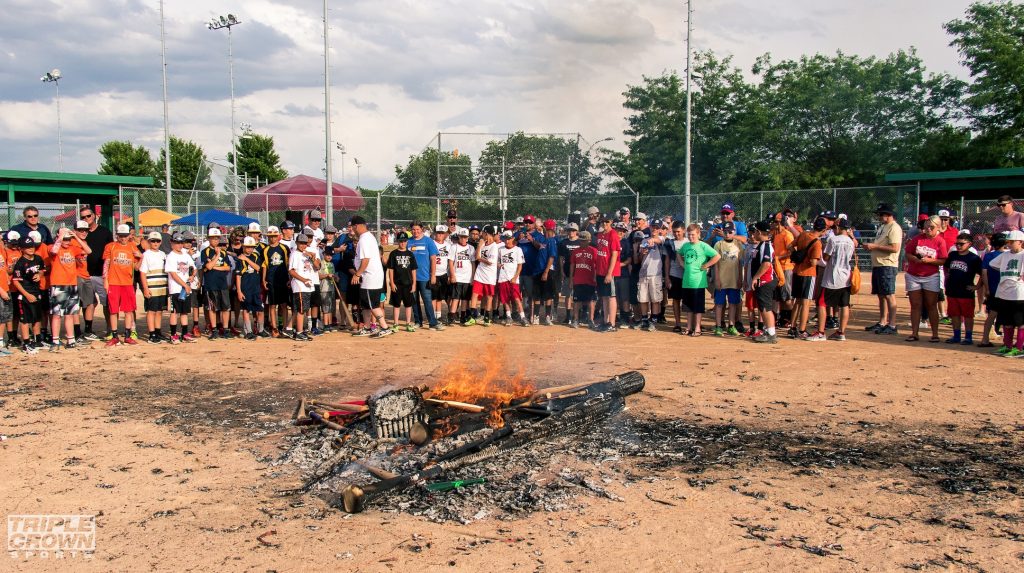
SPG: So what’s a Cancun Challenge spin event?
AH: One thing we do is a banquet night for all of the fans who have purchased a fan package. We get all the teams together and it overlooks the beach. We’ve got entertainment that comes in and does a show for the teams, and we’ve got this great buffet lined up. We don’t have the college coaches talk because they don’t like to do that. They just love to come and have dinner with their team. One year we had a Mayan dance as a cultural experience for the players, and the fans soak it all in. They get to eat dinner and be close to the teams, it’s really a great experience for the fans and something we added a few years ago. It’s been a huge success; we do one night with the men’s teams and one night with the women’s.

